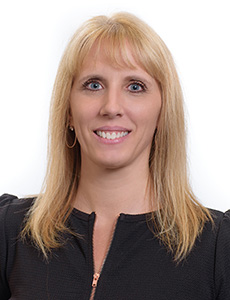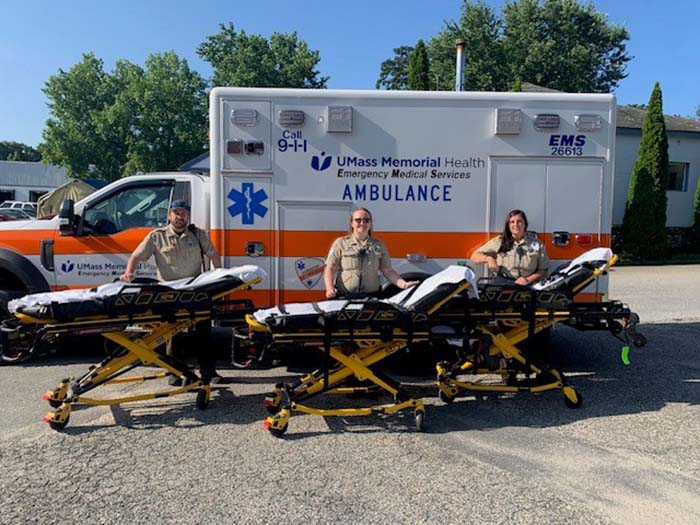Sponsored Content: Optum Workers’ Compensation and Auto No-fault Solutions
Why Businesses Should Use a Single Vendor for Their PBM and Settlement Solutions Programs

It’s no secret that medication spend is a huge driver of costs in workers’ compensation. The medications an injured person takes are often critical to their recovery process, but if they’re not prescribed in the right doses — or worse, if a person is taking medications that are not appropriate for their care — costs throughout the claim life cycle can spiral quickly.
Many companies choose to work with a pharmacy benefits manager (PBM) that helps ensure the appropriate clinical care of the injured person and works with pharmacies and drug manufacturers to help manage medication costs for clients.
Even with a PBM, managing costs can be tricky, especially when it comes to managing Medicare Secondary Payer Compliance (MSP). In accordance with the MSP Act, insureds need to set aside funds, typically in the form of an MSA, if an injured person is a Medicare beneficiary or is likely to become Medicare-eligible within 30 months. This helps ensure that the care costs for a workers’ compensation claim are not shifted onto Medicare. Approximately 10% of every 100 injured persons are Medicare beneficiaries.
To help manage those costs, in addition to working with a PBM, insureds should consider teaming up with a settlement solutions program that focuses on making sure they’re prepared for Medicare Set Aside (MSA) costs.
By thinking about the end of the claim from the beginning, a coordinated PBM and settlement solutions program benefits both the insured and the injured person.
The Benefits of Partnering with a Single Vendor for PBM and Settlement Solutions

Tron Emptage, Chief Clinical Officer, Optum Workers’ Compensation and Auto No-Fault
In medical care, it’s always better to have more information than less. Working with a single PBM and settlement solutions services vendor enables clients to share information about an injured person’s history and the future of their claim, which allows for a seamless transition.
“When you think about using separate vendors, the PBM is thinking about taking care of that patient, but may not understand that they’re in the settlement process or that they’re heading toward some resolution that needs to go through an MSA. If the two sides are connected, they can think about the future of the claim and provide histories to the settlement solutions side,” said Tron Emptage, chief clinical officer at Optum Workers’ Compensation and Auto No-fault.
Additionally, MSAs do not account for the potential weaning or discontinuation of medications. A single PBM and settlement solutions partner can help ensure that an injured person is getting the right care from the beginning of their claim, so that an insured doesn’t end up with a high- MSA allocation.
”When done correctly, it’s a seamless continual review of that information,” said Brenda Smith, manager of the Medicare mitigation unit for the Settlement Solutions group at Optum Workers’ Compensation and Auto No-fault. “Having pharmacy history immediately and consistently available is very beneficial, because then the settlement solutions team can continue to monitor and manage the claim with MSA and settlement in mind.”
A Strong Single Partner Leads to a Coordinated PBM and Settlement Solution Program

Brenda Smith, Manager of the Medicare Mitigation Unit for Settlement Solutions, Optum Workers’ Compensation and Auto No-Fault
Optum Workers’ Compensation and Auto No-fault is a prime example of a single vendor offering services as a PBM and settlement solutions program. This single provider setup allows for workers’ compensation programs to transition seamlessly from managing pharmacy care through a PBM to managing care for a person who becomes Medicare-eligible during the life of the claim.
Experts working in Optum PBM and Settlement Solutions Clinical Mitigation utilize their experience in pharmacy, medical claims and CMS/MSA guidelines to create tailored plans for an injured person’s treatments, which in turn drives down pharmacy and medical costs for the claim, resulting in benefits for both the client and the injured person.
“There is definitely overlap between the PBM and the settlement solutions groups. We use similar clinical tools and oversight to make sure, at all stages of the claim, we’re driving clinically-appropriate therapy recommendations that will be cost-effective. That way, the case will be positioned for settlement and also your MSA and getting CMS approval if that’s needed,” said Smith.
“We always remember that at the heart of every claim is an injured person who we’re taking care of,” Emptage said. “They are someone’s mother, father, sister, brother or child. From the PBM perspective, we’ve been in the business for over 45 years and on the settlement side, our Medicare Clinical Mitigation services launched in 2014. We use all this knowledge to build our programs and to make sure that injured folks are taken care of throughout the workers’ comp process.”
By working together, the efforts of Optum PBM and Settlement Solutions Clinical Mitigation recently helped one client achieve MSA allocations that were, on average, 20% lower. These cost savings are driven by proactively reviewing treatment over the life of a claim to address clinical concerns, as well as cost containment opportunities like making the switch from brand name to generic medications.
“When you can do both of those things like we do at Optum, it’s a great benefit to our clients and the injured person, because we’re thinking about the full picture. We’re thinking about the end goal from the beginning of that case,” Smith said.
With Optum, you don’t have to choose between compliance and cost savings, you can have both.
For more information, visit https://workcompauto.optum.com/content/owca/owca/en/solutions/settlement-solutions.html.
This article was produced by the R&I Brand Studio, a unit of the advertising department of Risk & Insurance, in collaboration with Optum Workers’ Compensation and Auto No-Fault. The editorial staff of Risk & Insurance had no role in its preparation.










